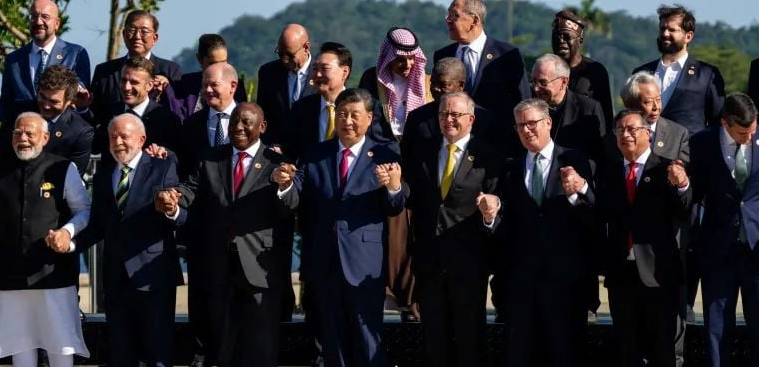
The recent G20 summit concluded with leaders addressing pressing global issues, including the ongoing conflicts in Gaza and Lebanon, the escalating climate crisis, and the growing economic inequality. In a joint statement, the leaders emphasized the need for immediate ceasefires, ambitious climate initiatives, and wealth redistribution policies such as taxing the ultra-rich.
Ceasefires in Gaza and Lebanon: A Plea for Peace
The G20 leaders expressed grave concern over the violence in Gaza and Lebanon, calling for an immediate cessation of hostilities. Stressing the humanitarian crisis in these regions, the summit highlighted the urgent need for:
- Unhindered humanitarian aid: Leaders agreed on facilitating international relief efforts to provide food, medical supplies, and shelter to affected populations.
- Diplomatic engagement: The G20 urged all parties involved to pursue dialogue and negotiations to achieve lasting peace in the Middle East.
The call for ceasefires reflects a broader international demand for stability in the region, with global powers pushing for cooperation among stakeholders to prevent further escalation.
Accelerating Climate Action
Acknowledging the accelerating impact of climate change, the G20 reaffirmed its commitment to global climate goals, including the Paris Agreement. Key points of focus included:
- Renewable Energy Investment:
Leaders called for increased investment in renewable energy projects to reduce reliance on fossil fuels and accelerate the transition to cleaner energy sources. - Climate Finance for Developing Nations:
Wealthier nations pledged to provide financial and technological support to developing countries to help them adapt to climate impacts and transition to sustainable development. - Phasing Out Fossil Fuel Subsidies:
A consensus emerged on phasing out subsidies for fossil fuels while incentivizing green innovation and infrastructure. - Biodiversity Conservation:
The summit emphasized the protection of ecosystems, particularly in regions vulnerable to climate change, to ensure sustainable development.
Addressing Economic Inequality: Taxing the Ultra-Rich
The G20 leaders proposed a more equitable economic framework by taxing the ultra-rich to fund critical global initiatives, including education, healthcare, and climate resilience. The move aims to:
- Reduce global wealth disparities: Redistributing wealth through progressive taxation systems.
- Bolster public welfare programs: Using the generated revenue to strengthen social safety nets and address poverty.
- Support global development goals: Financing initiatives aimed at achieving the United Nations’ Sustainable Development Goals (SDGs).
This measure has received mixed reactions. Proponents argue it is a necessary step to address inequality, while critics warn of potential economic repercussions and resistance from affluent individuals and corporations.
Global Implications of the G20’s Commitments
The resolutions adopted at the G20 summit underscore the interconnected nature of global challenges, from regional conflicts to environmental and economic crises. If implemented effectively, these measures could:
- Foster greater stability in conflict zones by prioritizing humanitarian efforts and diplomatic dialogue.
- Advance global climate goals through collective action and resource sharing.
- Mitigate economic disparities and enhance global solidarity by redistributing wealth to benefit marginalized communities.
Challenges Ahead
While the G20’s commitments signal progress, significant challenges remain, including:
- Ensuring compliance and accountability among member nations.
- Balancing diverse economic and political priorities across countries.
- Addressing resistance to taxation policies and climate measures, particularly from influential stakeholders.
Conclusion
The G20 summit’s focus on peace, climate action, and economic justice marks a critical step toward addressing some of the world’s most pressing issues. As the international community watches closely, the onus is now on global leaders to translate these commitments into tangible actions that foster peace, sustainability, and equity.
